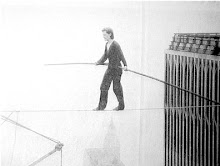In France there’s a body of linguistic experts called “l’Academie français.” Among its roles is to oversee the language and make sure it remains appropriately French, especially in the face of creeping globalization and the general Americanization and Anglicization of most of the world’s cultures and languages. It studies the emergence of new terminology and makes determinations about whether the term can be appropriately francicized. If not, it proposes French alternatives.
For instance, in French, e-mail, which is shortened from electronic mail, is called couriel, which comes from courier electronique. A hamburger is called un hambourgeois. Just for the record, a cheeseburger is not a cheesebourgeois, but un hambourgeois avec fromage; however, a hot dog is un chien chaud. French fries are not frites français, but patates-frites.
English doesn’t work that way. There’s no group of English linguistic scholars pronouncing on the appropriateness of new English words, or words that have been borrowed from other languages. There’s nobody sitting in an ivory tower somewhere deciding whether we should adopt a word like tsunami or develop a more English-sounding term instead.
Whether this is a good thing is open to debate. There’s no doubt that our language is filled with words that have been taken from other languages. In most cases we’re richer for it. We have taken words from the French (denim, buccaneer), from Native Americans (canoe, igloo, chinook), and from India (pyjamas), among others, and made them our own.
As I mentioned in a previous posting, we have an enormous quantity of words that are directly descended from Latin or Anglo-Saxon words. We still have Celtic words in our lexicon too.
So what would our language look like if somebody had to evaluate every new word that came along and decide whether it was good enough to join the family?
Actually, in a way, someone is doing this. Or rather, several people are doing it, all over the world. Most English speaking countries have native dictionaries that are widely considered to be authoritative. In the U.S. it’s Webster’s. In the U.K., it’s the Oxford English Dictionary. Canada and Australia have their versions too. The inclusion of a word in one of these texts is like a baseball player getting to the Major Leagues.
What we don’t have is somebody actively telling us whether a new word is, in fact, a word. In English, if enough people are using it, it’s a word and the dictionaries record its arrival after the fact. In other words, the people decide whether a new word is a word. It’s all very democratic and, like democracy, messy at times. But for my money, it’s the best way to keep a language vibrant and vital.
Sunday, November 28, 2010
Subscribe to:
Post Comments (Atom)

No comments:
Post a Comment